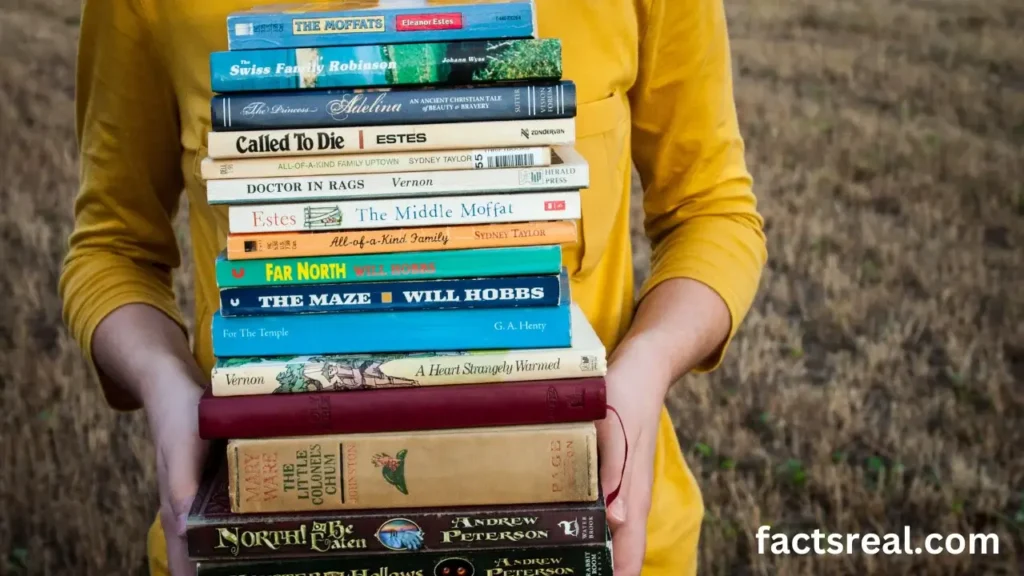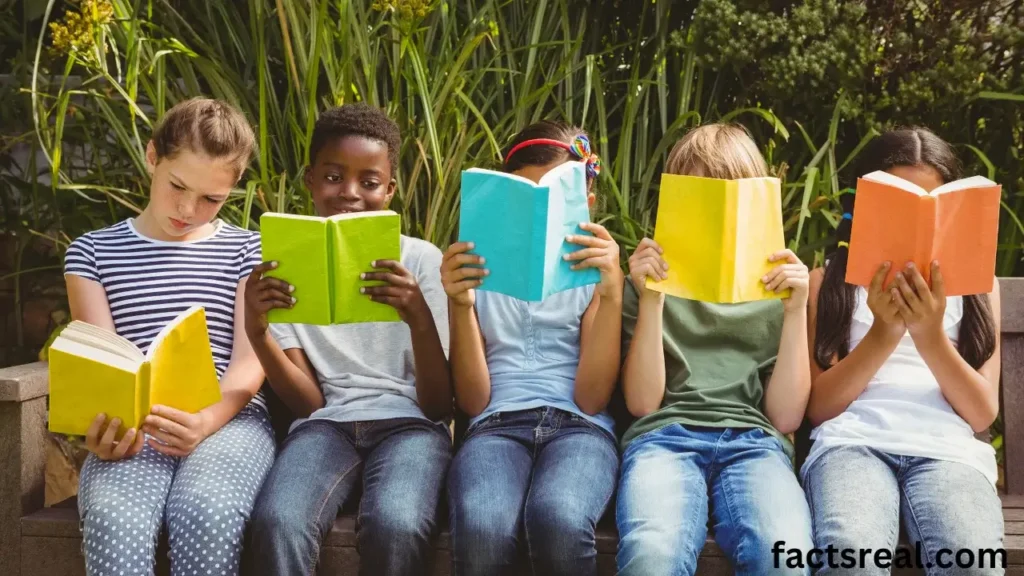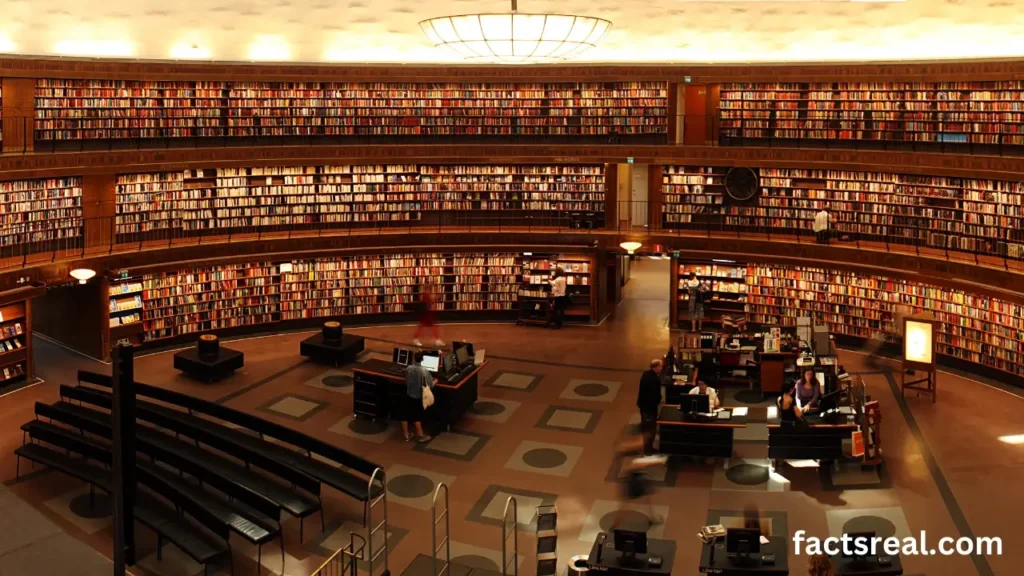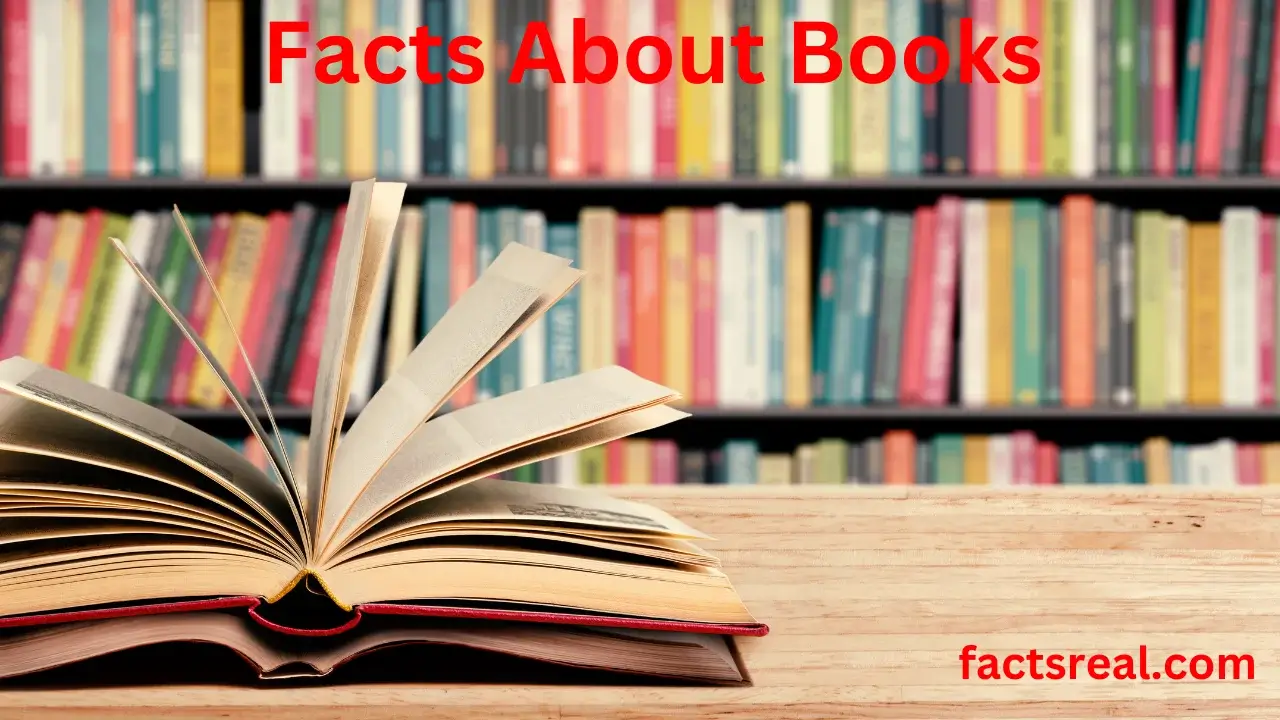Discover intriguing facts about books that will surprise you.
Books have been a part of human life for centuries, offering information, entertainment, and motivation. They come in many shapes, from old compositions to present-day e-books, and have continuously played a crucial part in forming our world.
This article will investigate the intriguing history of books, the diverse sorts of books accessible nowadays, and a few curious truths about them.
Well, see how books have affected society and share a few fun trivia about celebrated creators and interesting libraries. In conclusion, you’ll have a more profound appreciation for the significance of books in our lives.
The History of Books

Early Beginnings
The story of books started thousands of years ago with early forms like clay tablets and scrolls. Antiquated civilizations, such as the Sumerians, utilized clay tablets to record imperative data, whereas scrolls made of papyrus or other materials were well-known in Egypt and Greece.
Over time, these scrolls advanced into original copies, written by hand reports that were frequently perfectly brightened. The foremost noteworthy alter came in old Rome when the codex organizes was presented.
This modern arrangement, with pages bound together like advanced books, made perusing and putting away data much simpler, setting the organize for the books we know nowadays.
The Invention of the Printing Press
Johannes Gutenberg’s development of the printing press in the 15th century changed the world forever. Sometime recently the press and books were replicated by hand, making them uncommon and exorbitant.
Gutenberg’s press permitted books to be printed rapidly and in expansive amounts, making them reasonable and accessible to more individuals. This breakthrough led to a noteworthy increment in education, as more individuals seemed to possess and examine books.
It moreover made it easier to spread information and concepts, which played a significant part in progressing instruction and forming a cutting-edge society. The printing press revolutionized the way individuals accessed information.
Modern Publishing
Within the 19th and 20th centuries, book distribution underwent critical changes that made books more open to everybody. The presentation of unused printing advances permitted distributors to create books speedier and in bigger amounts.
This drove the rise of soft-cover books, which were cheaper and less demanding to carry than conventional hardcovers. Mass-market distribution moreover became prevalent, with books being sold in stores, stands, and indeed grocery stores.
These changes implied that more individuals might bear to purchase and study books, spreading information and stories to a much more extensive group of onlookers than ever sometime recently.
Types of Books

Fiction vs. Non-Fiction
Books are generally divided into two fundamental categories: fiction and non-fiction. Fiction books are made-up stories made from the author’s creative energy. They incorporate books, like *Harry Potter*, and brief stories that engage and motivate perusers.
On the other hand, non-fiction books are based on genuine occasions, individuals, or truths. They incorporate life stories, which tell the life stories of genuine individuals, and self-help books that offer exhortation on individual development and tackling life challenges.
Whereas fiction takes us to fanciful worlds, non-fiction makes a difference in us getting it and learning from the real world around us.
Genres of Books
Books come in various genres, each engaging to a different interface. Fiction classes like puzzles include tackling confusion, whereas sentiment centers on adored stories. Science fiction investigates cutting-edge innovation, and daydream takes perusers to enchanted universes.
Non-fiction sorts offers real-world information, with history books covering past occasions, science books clarifying characteristic marvels, and travel books sharing encounters from distinctive places.
Each sort offers a one-of-a-kind perusing encounter, whether it’s the excitement of a riddle, the enchantment of daydreaming, or the learning found in history and science. Anything you are intrigued by, there’s a book class that will captivate you.
Special Formats
- E-Books: E-books are advanced books that can be examined on gadgets like tablets or e-readers. They are versatile, reasonable, and simple to get anywhere.
- Audiobooks: Audiobooks are recordings of books that you can tune in to. They are extraordinary for multitasking or for those who favor tuning in over perusing.
- Graphic Novels: Graphic novels combine visual craftsmanship with content to tell stories. They offer a one-of-a-kind and immersive perusing encounter.
- Comparison with Traditional Books: These groups contrast with traditional books by advertising more adaptability and catering to different perusing inclinations, making perusing more open.
Interesting Book Facts

Longest and Shortest Books
- Longest Books: A few books are known for their great length, requiring critical time and exertion to examine. For Case, War and Peace by Leo Tolstoy is one of the longest books ever composed, with over 1,200 pages, investigating a tremendous cluster of characters and chronicled occasions.
- Shortest Books: On the other hand, a few books are brief and fast to peruse but still have an enduring effect. The Small Sovereign, by Antoine de Saint-Exupéry, maybe a popular case, with beneath 100 pages. Despite its brevity, it tells a profound and meaningful story.
The World’s Most Expensive Books
Some books are so rare and important that they have been sold for millions of dollars. One of the foremost costly books ever sold is Leonardo da Vinci’s “Codex Leicester”, a logical diary filled with his sketches and concepts.
It was obtained by Bill Gates for over $30 million in 1994. Other uncommon books, like a to begin with version of Shakespeare’s works or the Gutenberg Bible, have moreover brought tall costs at barters.
These books are not fair profitable for their substance but moreover for their chronicled importance and the understanding they give into the past.
The Impact of Books on Society

Influence on Culture
Books have a powerful influence on forming cultures, convictions, and societal standards. Through stories, thoughts, and information, books present modern viewpoints and challenge existing views.
For illustration, books like To Kill a Mockingbird by Harper Lee have brought consideration to social issues like bigotry and equity, affecting how individuals think and act.
Devout writings, just like the Book of Scriptures or the Quran, have also played a major part in forming the ethical values and hones of social orders. By spreading thoughts and empowering basic thinking, books offer assistance in shaping the way societies advance over time.
Books and Education
Books have played a crucial part in education throughout history. They have been the primary source of knowledge, making a difference individuals learn almost different subjects, from science and arithmetic to writing and history.
Textbooks are basic in schools, directing understudies through organized learning. Over time, books have too allowed self-education, empowering individuals to memorize unused aptitudes and extend their understanding of their claims.
With the appearance of computerized books, getting to instructive materials has gotten to be indeed simpler, making learning more open to everybody around the world. Books stay a foundation of instruction and individual growth.
Books in the Digital Age
With the rise of digital technology, more individuals are perusing books on screens instead of on paper. E-books and audiobooks can be effectively downloaded and perused on gadgets like smartphones and tablets.
This move has changed how we get to and appreciate books, making them more helpful and frequently cheaper. Conventional printed books are still cherished by numerous, but advanced groups offer adaptability and movability.
Whereas a few stress that print books might vanish, the computerized age has made perusing more accessible and has presented other ways to appreciate stories.
Fun Facts About Books

World Book Day and Other Celebrations
World Book Day, celebrated annually on April 23, may be a global occasion that advances perusing and celebrates books. It encourages people to choose books and appreciate perusing them.
Numerous nations have their claim book-related occasions, such as National Perusing Month or Book Week, where libraries and schools have exercises and creator readings. These celebrations highlight the bliss of perusing and the significance of books in our lives.
They offer assistance in raising mindfulness approximately in writing and frequently highlight extraordinary rebates on books and creator talks while perusing challenges to rouse people of all ages to study more.
Unique Libraries
Some libraries around the world are one-of-a-kind. For instance, the Library of Alexandria in Egypt was popular in old times for its endless collection of information. Nowadays, the Beinecke Uncommon Book & Original Copy Library in Connecticut highlights a staggering glass veneer and houses uncommon original copies.
The Admont Nunnery Library in Austria is known for its florid engineering and wonderful frescoes. The Trinity College Library in Dublin is domestic to the Book of Kells, a perfectly outlined composition from the 9th century.
These libraries are not fair places to discover books; they are structural ponders and social treasures.
Conclusion
Books have a rich history and come in many forms, from antiquated compositions to modern e-books. We’ve investigated their advancement, from the development of the printing press to the rise of computerized groups.
We’ve moreover looked at diverse sorts of books, from fiction to realistic books, and found a few special and costly ones. Books play a significant part in our lives by giving information, excitement, and an association with the past.
As innovation changes how we peruse, the ageless esteem of books remains, proceeding to inspire and illuminate us in unused and exciting ways.
What is the oldest known book?
The oldest known book is the Epic of Gilgamesh, an old Mesopotamian content that dates back to around 2100 BCE. It was initially composed on clay tablets and tells the story of the legend Gilgamesh.
How did the printing press change book publishing?
The printing press, invented by Johannes Gutenberg in the 15th century, revolutionized book distribution by making it quicker and cheaper to deliver books. This led to an increment in education and the spread of knowledge to a more extensive gathering of people.
What are e-books and how do they differ from printed books?
E-books are advanced versions of books that can be examined on gadgets like e-readers, tablets, or smartphones. Not at all like printed books, they are convenient, regularly cheaper, and can be gotten to right away, but they need the physical nearness and feel of traditional books.
What are graphic novels and how are they different from regular books?
Graphic novels are books that combine content with outlines to tell a story. They are diverse from standard books since they utilize visual components to upgrade the account, comparable to comedian books but regularly with more complex and mature themes.
Why are some books so expensive?
Some books are very costly due to their irregularity, chronicled importance, or special highlights. For case, to begin with versions, books with verifiable significance, or original copies composed by popular creators can get tall costs at auctions.
